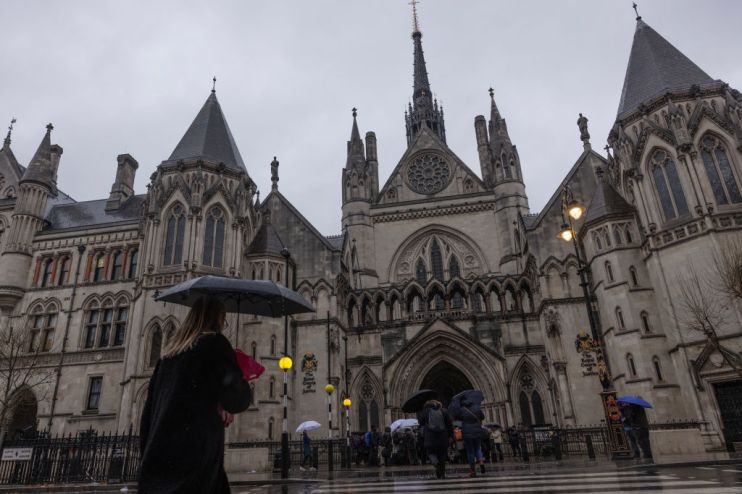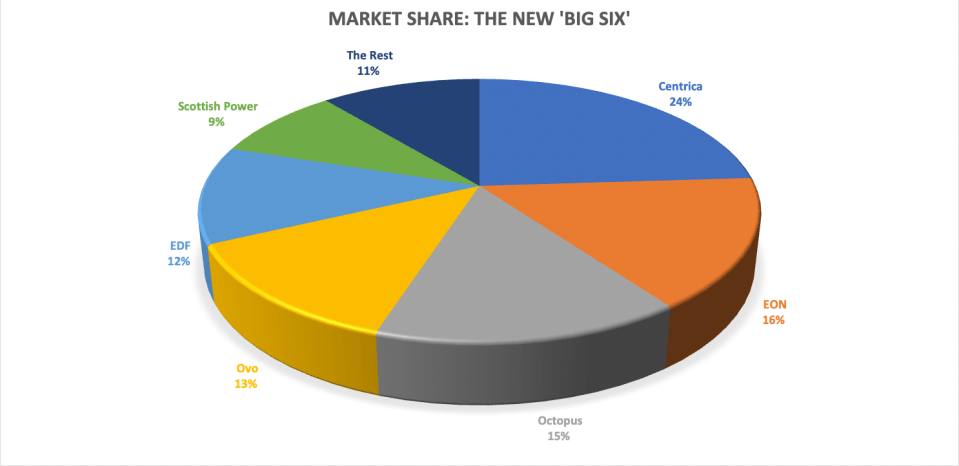Octopus hits back at challenge to Bulb deal arguing it was more ‘nimble’ than rivals

Octopus Energy has hit back at the energy firms challenging its takeover of Bulb Energy, with the supplier’s lawyer arguing in court today that the company was simply more “nimble” and “saw an opportunity that others missed” in its deal-making with the government.
Its lawyer argued that the rival suppliers were not concerned about how to advance public interest in the energy crisis, and were challenging the deal because it went against their commercial interest – with Octopus proving to be an increasing threat to their market share.
“These claimants are members of what is known as the Big Six, and by contrast Octopus was established in 2016 and its market share has steadily increased,” he said.
The company was defending its takeover of Bulb in the final session of a three-day judicial review at the Royal Court of Justice in London, which has involved three other Big Six suppliers – EON UK, Scottish Power and British Gas owner Centrica – alongside the government and administrators Teneo.
The case is between the government and the three rival energy firms, but Octopus contributed to proceedings today as an interested party.
Octopus’ takeover of Bulb was finally greenlit in court last year and makes the energy firm the third biggest in the UK with nearly five million customers, behind just two of the claimants in terms of overall market share.
The deal for Bulb includes a nine-figure sum, a profit-share agreement with the government involving the 1.6m customers and hedging support in the form of a loan.
However, the takeover is being challenged in a judicial review, raising the prospect of fines, compensation or the deal potentially being revoked if its challengers are successful.
British Gas, EON and Scottish Power have consistently argued the government unlawfully committed billions of pounds of taxpayers’ money to prop up Bulb, without considering consequences to the wider energy market.
During this week’s proceedings, British Gas owner Centrica has raised concerns over the lack of transparency over the deal and argued throughout legal proceedings that Octopus was offered terms by the government that were not explicitly made available to other suppliers.
This is an argument Octopus disputes.
Its lawyer today argued the rival companies were well-resourced players who were “able to enter negotiations if it was in their interests to do so” and it was commercial reasons that meant they did not proceed with bids to match Octopus.

Legal challenge reflects heated Octopus-Centrica industry rivalry
Octopus’ legal response follows Centrica arguing earlier this week that, if the company had been told about government support, “there would have been a bid by British Gas and (there) would have been a lower taxpayer cost” in the deal.
Meanwhile, Scottish Power’s lawyer also made contributions in court today, arguing that the government made a “selected decision” to approach people and what the possibility of government funding meant was clearly very different to other players in the market.
The lawyer said: “What opportunity Octopus got was different to what was given to my clients.”
Octopus’ takeover of Bulb was first announced last October, when the government revealed it would provide up to £4.5bn to fund the deal – although the extent of government support could be less depending on energy prices.
However, Octopus argues the deal is now expected to benefit the taxpayer.
City A.M. understands the supplier has calculated the government will make £1.2bn in profit from the hedging arrangement – a forecast that will feature in its submission to the judicial review case.
The £1.2bn earnings reflects the cost of hedging support at £1.76bn, with Octopus set to pay back nearly £3bn to the government following recent sharp declines in wholesale prices.
The judicial review is being overseen by two judges has now concluded, with a verdict expected to be reached later this year in spring.